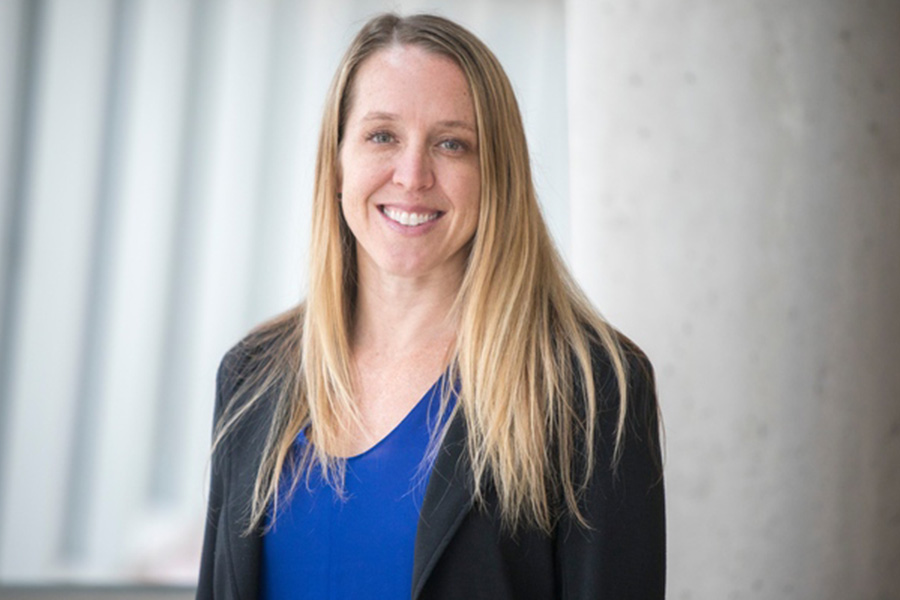Andrea Dutoit, MD, associate professor with the UNMC Department of Anesthesiology, has been named president-elect of the Association of Anesthesiology Core Program Directors (AACPD).
The two-year term, which begins in 2024, is only the beginning. Dr. Dutoit will follow this appointment with terms as president and past president, giving her a six-year stint on the association’s executive leadership committee.
The group is composed of the directors of anesthesia residency core programs. Among Dr. Dutoit’s leadership responsibilities is helping coordinate the AACPD national meeting, serving as a contact point for members and educators across the country and providing a voice in matters that impact anesthesiology residency program directors within the broader Association for Anesthesiology.
Mohanad Shukry, MD, PhD, interim chair of the UNMC Department of Anesthesiology, congratulated her on the new role.
“Dr. Dutoit is one of the best anesthesiology residency program directors in the country, and her election to lead such a prestigious national organization is no surprise,” he said. “Dr. Dutoit has demonstrated her passion, dedication and expertise in graduate medical education as well as in anesthesia education. Her career is on an upward trajectory, and I anticipate that she will continue to have a positive impact on residents, fellows and programs going forward. It is a privilege to have a faculty in Dr. Dutoit’s caliber in our department and UNMC.”
In her role, Dr. Dutoit said, she will try to address issues of consequence to the members.
“I want us to do a better job of keeping people on this path, because it’s a tough path for people to operate in a silo,” she said. “That was my motivation in joining.”
In addition, changes to the Electronic Residency Application Service have created challenges, she said.
“We participated in the supplemental application last year, and now program-signaling in the residency application process,” she said. “We’re still learning how the changes affect certain programs and what to do with the information, how to disseminate guidance to people and come together as a specialty so that everybody gets value out of this new system.
“The council gets to lead the way in terms of getting the feedback from our membership and making sure we move the specialty of anesthesiology in the direction that most represents the needs and wants of the membership and the people going into anesthesiology,” she said.
She stressed collaborating with the program directors she will be representing, noting, “we should all be working together. There’s no piece of information that I should have that somebody else doesn’t have.”
Additionally, she said, diversity of opinion makes the group stronger and better able to serve its residents.
“It’s important for people in their own areas – with certain needs and knowledge of their culture and community – to step up and contribute to the national conversation. If not, a community and culture might get left behind altogether. And the only way that you become a part of the conversation is by being willing to contribute to it.”
That is why, she said, she finds her role important.
“If there’s not somebody to represent Nebraska or the Midwest on the national level, decisions get made without that kind of input. To me, that’s why it’s important to get somebody from Nebraska or from different institutions into these milieux so we can be a part of conversations going forward.”
